International Rescue Committee with Paul Blow show the added dangers of coronavirus to refugees.
COVID-19 is turning out not to be a deterrent for migrants who attempt to cross the world’s most dangerous desert and sea. Aid organisations have sounded the alarm as thousands of people either go missing or perish as they journey from sub-Saharan Africa to reach Europe despite movement restrictions due to COVID-19. Among those who embarked on this journey this year and have lost their lives, 255 have drowned in the Mediterranean.
Through a multimedia campaign, including illustrations by artist Paul Blow, the Danish Refugee Council, International Rescue Committee, the Start Network and the Mixed Migration Center have together launched a call to the international community to uphold the rights of people making the perilous journey through Mali, Niger, and Libya to Italy and other European destinations. Migrants, including refugees and asylum seekers, face immense suffering, including torture, exploitation and the threat of perishing in the unforgiving desert or sea.
Paul’s powerful illustrations tell the stories of people who undertook the incredibly dangerous Central Mediterranean Route in the aforementioned countries, excerpts from which you’ll find below his pieces, telling the dangers they face, their hopes for the future, and how and why they keep going in the face of it all.
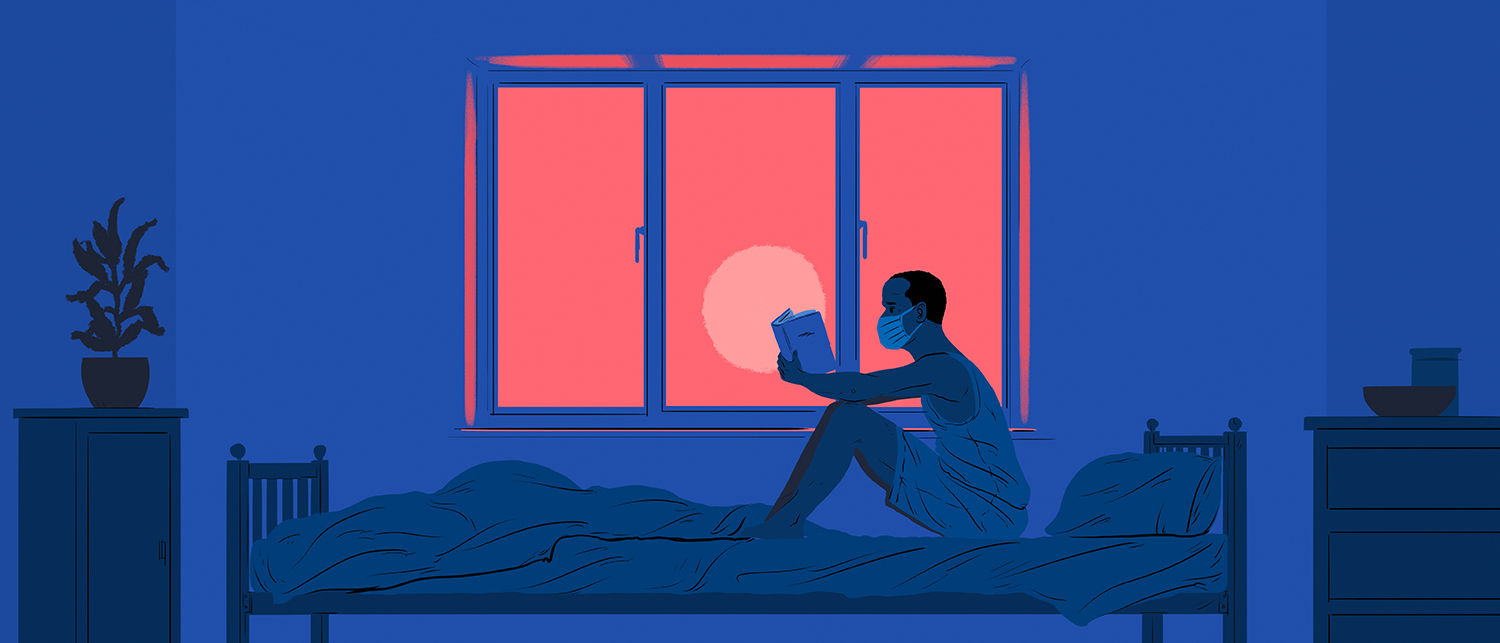
The words of Victor, a Nigerian man who made the perilous journey: “It’s scary and horrible. I keep hearing sirens blaring [because] they just picked somebody up who is dead, so it’s scary. It’s like war. The only difference is you don’t hear bomb sounds and gunshots, you just hear sirens blaring. You don’t see anyone outside.”
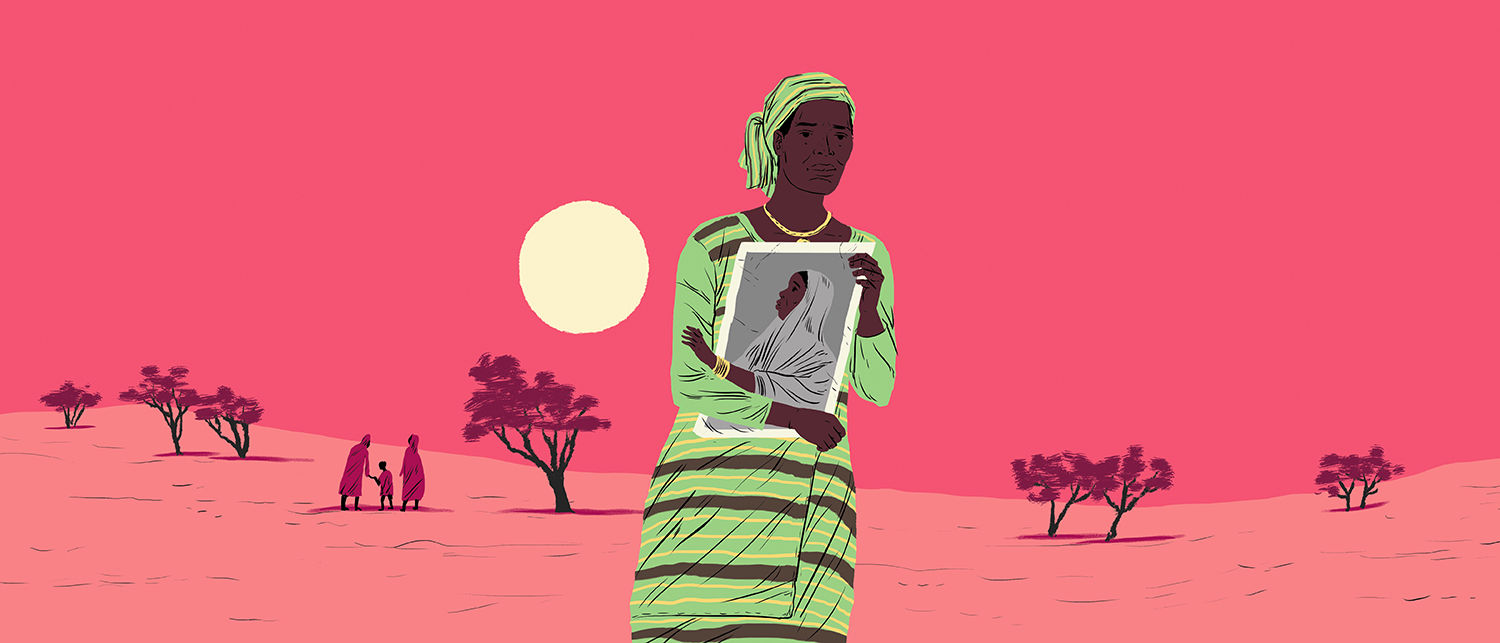
“I want to help my family. I want to help my mother, my father, my sister. This is why I want to go to Libya. The most important thing I forgot to take is my sister and brothers’ picture. I forgot my phone and I could not contact my mother, my brothers or sister. Before I started my journey, I only took one thing very important to me: my mother’s photo so I do not feel lonely. I check the photo and feel I am at home.” (Anonymous)
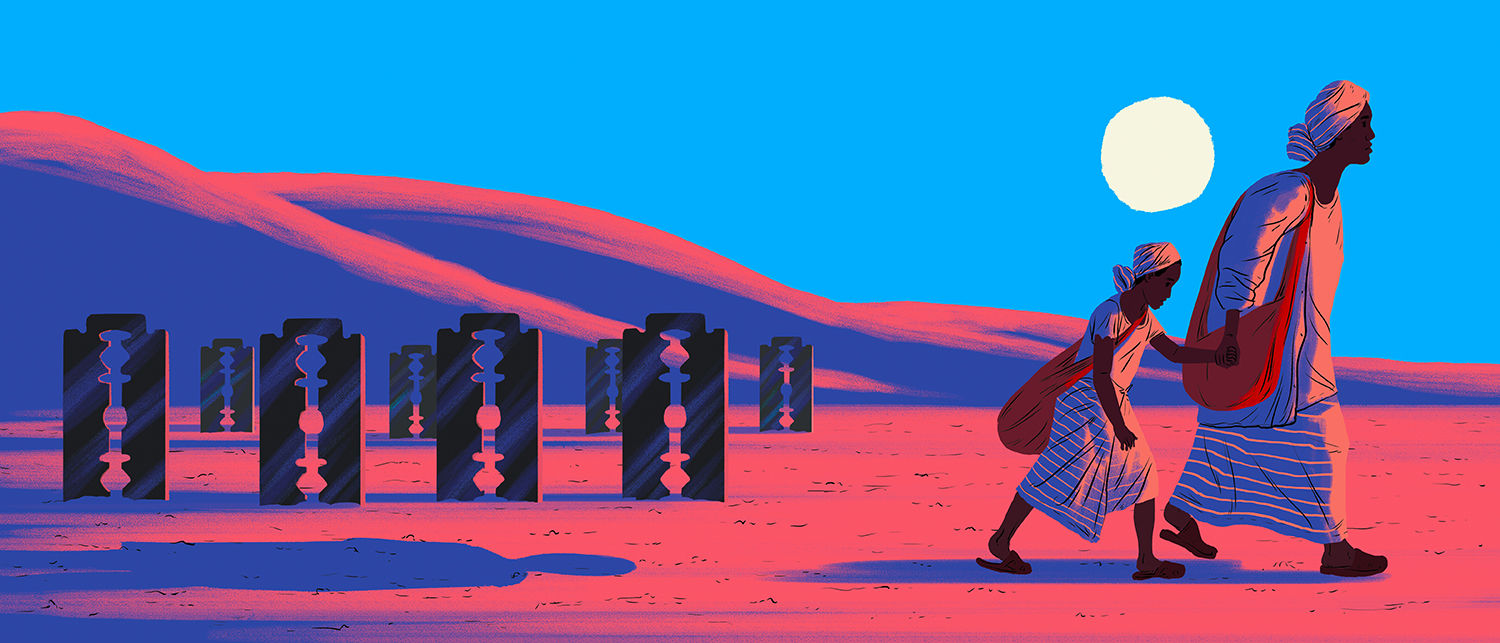
One woman reported fleeing from Sudan to Libya for a variety of reasons, including domestic violence as well as her husband’s attempts to force her daughter, then 11 years old, to undergo Female Genital Mutilation. In addition, she was also fleeing political persecution. She needed to find work. Although her reasons for leaving were many.
Today, her main concern is protecting her now 14 year old daughter and being able to provide a better life for her. She hopes to go to Canada eventually but is first trying to get to Italy. She didn’t tell her family she was leaving. However, her husband has come to Libya in search of her.
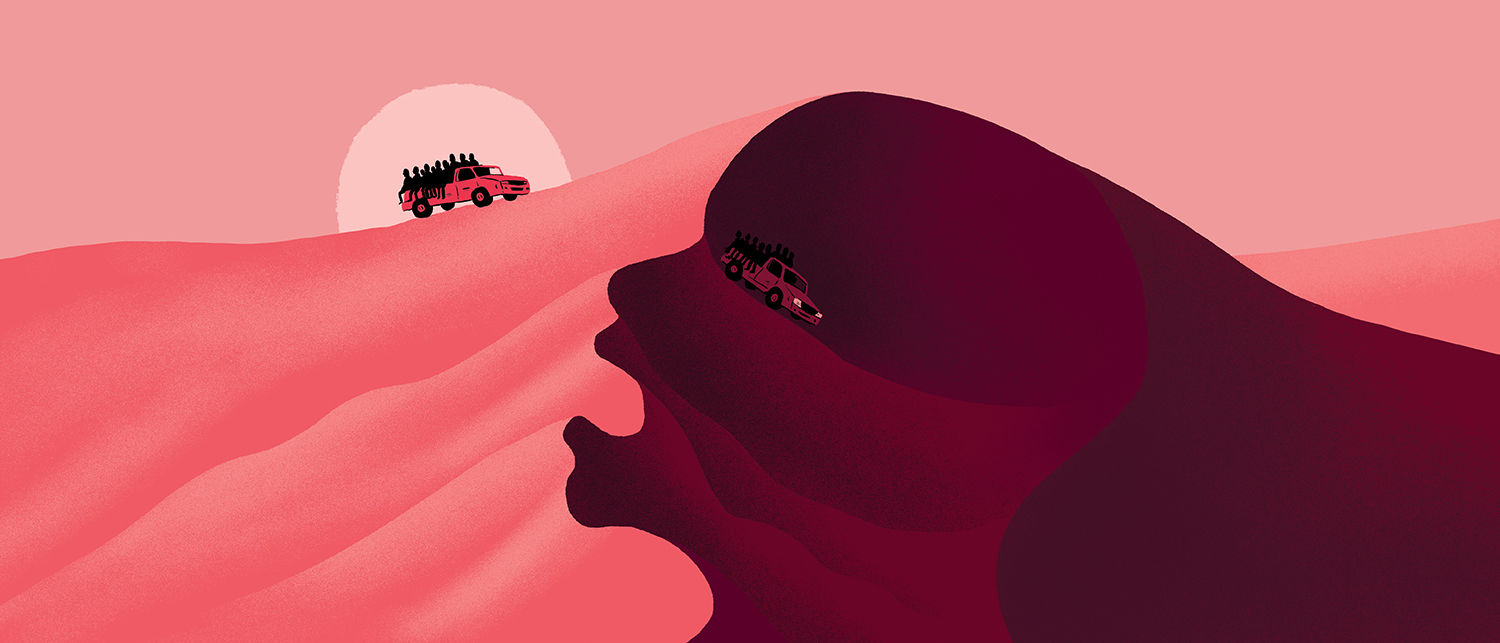
In the words of Jidda, a Nigerian man who made it to Italy after going through the Central Mediterranean Route: “During our journey, one car went missing at some point. I had two friends there and I asked them what happened. They said on their way, two guys died, so they now have to park the car and bury them there immediately. They died from dehydration. No water. There is no water and the sun is crushing. It’s the Sahara Desert we are talking about. It’s hot. There is no shade. There are no trees. Nothing. The breeze that comes is as hot as fire. So when you are really not that strong and I could still say it is the grace of God and not how strong you are because I have seen hefty people fall. You hear people crying, wailing.
It was a terrible journey. Days, nights, they keep driving. They mistreat you. You don’t have a voice. You see people fainting every now and then. I remember vividly: I revived three people with the water I had. They would just collapse. Sometimes we would hit the car for the driver to stop. Eventually, they would stop. They start speaking Arabic, they don’t speak English. They start beating you, asking you for money. They don’t even care about human life. They have guns, AK-47s. They have guns because sometimes they encounter terrorists in the desert who might rob them of the car and leave them stranded and when somebody is stranded in that desert, it is death. There is no water. I wonder how somebody survived it for three or four days.
“During the journey, some trucks chased us. They shot at one of the vehicles and killed two people. Then when they stopped following us, we drove back then we started the journey again. I think we were still in the desert for six days. There were lots of checkpoints. They collected all the money we had. They beat us severely. I think we passed about 4 checkpoints. At this time we had no money, so in some cases they would take some of the ladies among us and rape them. We saw a lot of atrocities.”
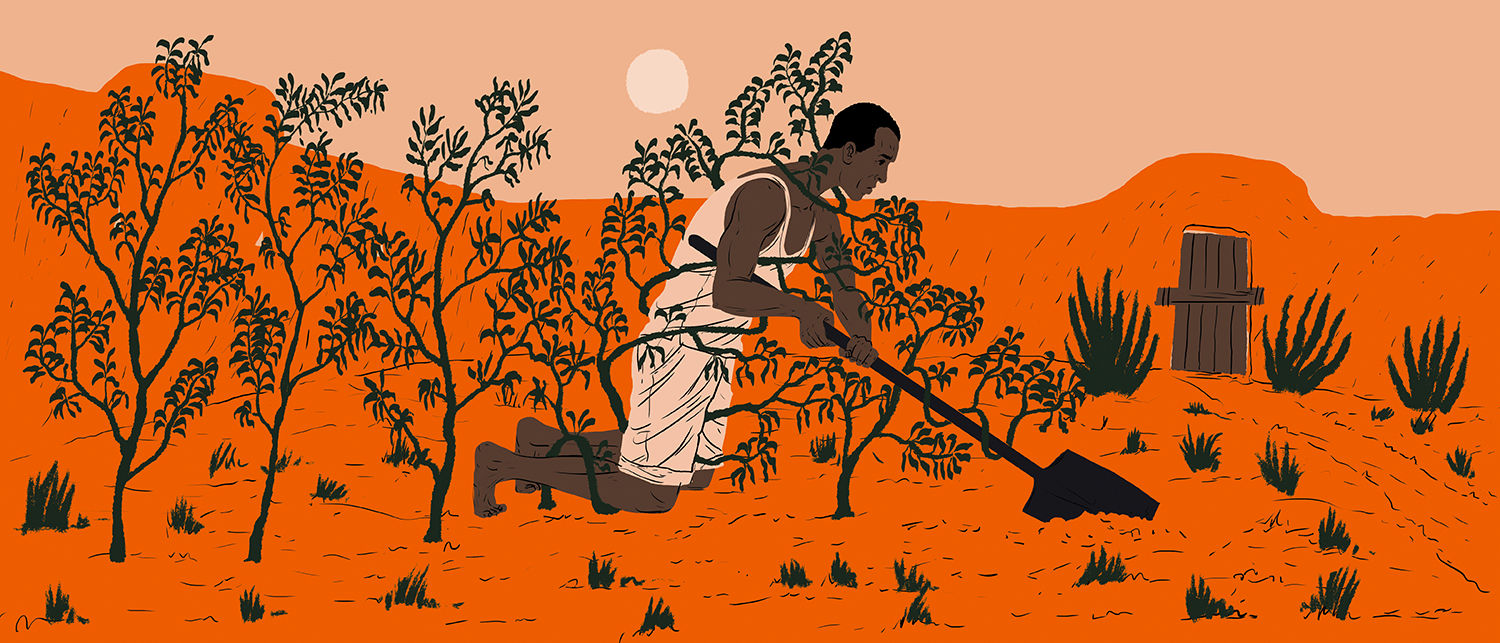
In the words of Alia, who was training to be a vet when she decided to leave Sudan: “There is this guy called Mohammad. He starts working very early in the morning. I wake up at 7 am and I find him working. He works and plants things, until the evening, until 10 or 11 pm. He spends the whole day working non-stop. Even the clothes he wears, he never changes. Well, if only they gave him the pay that he deserved, but no. As a human being he is being mistreated, he is a human being at the end of the day…”
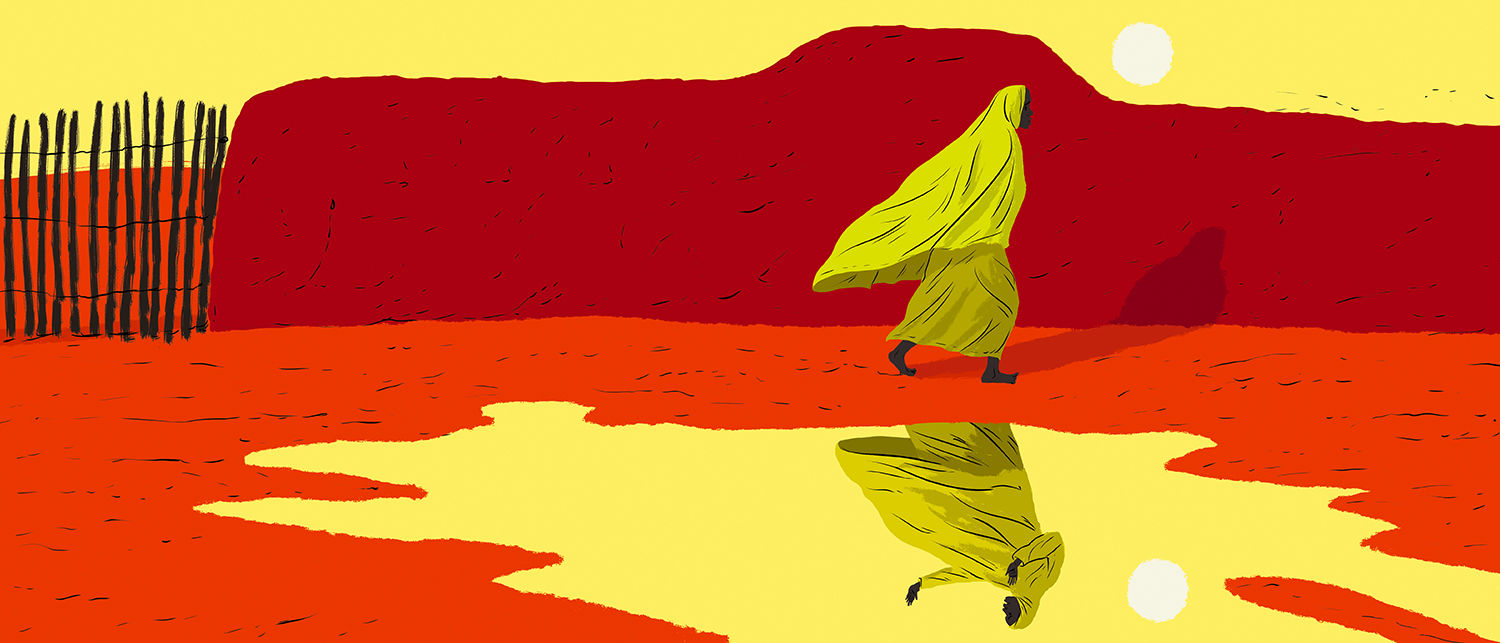
In the words of 27-year-old Marie, from Cameroon: “I was raped and attacked by some gangsters. But I had a goal in mind. I wanted to reach my goal. So, I decided to move on and not look backward or to think about what happened. I saw many rapes. We were sequestrated. We thought we were going to sleep in a safe place, but we weren’t safe at all. That is all I can say. The worst thing currently, is that I have nowhere to sleep. I am sleeping in the street or in the bus stations.”
In the words of 40-year-old Grace from Togo WHO was propositioned in Niger. “I don’t have enough money to go back to my country. I met women who were prostitutes. They advised me to do it. Even just for two or six months. They said, that way I could earn a lot of money and go back to my country. But I said no. I don’t like when people are taking advantage of me. Especially for money. I couldn’t do it. They have to do it. They have no choice. There is no other job there. Either you are a prostitute, or you work under Arabs. You have no choice.”
All art by Paul Blow, with excerpts taken from the International Rescue Committee, where more art and stories can be found.
Related: Rob Ryan, Morag Myerscough and other artists urge you to Choose Love
https://www.digitalartsonline.co.uk/features/illustration/powerful-illustrations-tell-migrant-stories-in-time-of-pandemic/

